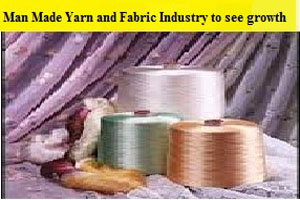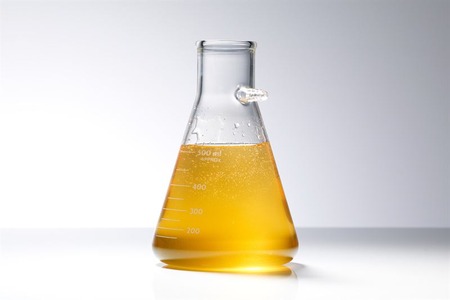
Manmade yarn and fabric industry likely to see growth rate of 5 to 7pc in this year
YarnsandFibers News Bureau 2015-05-07 12:00:00 – AhmedabadThe manmade yarn and fabric industry likely to see growth rate from five to seven percent in 2015-16, with stability in crude oil prices. However, as Indian synthetic yarn and fabric performance has not been one of the best internationally, the domestic market will see the larger growth.
In 2015-16, demand recovery for manmade filament, fibre, yarn and fabric is likely to be backed by an increase in off take by apparel manufacturers, as per CMIE report. The apparel segment consumes a little more than half of the total synthetic fibre produced by the industry. Manufacturers of home textiles and technical textiles are also expected to increase the usage of synthetic fibres during the year. Also, with crude oil prices expected to remain stable, PTA and mono-ethylene glycol prices are likely to come down, too, leading to a decline in polyester prices by 8 to 12 percent this year. Domestic and international prices of both the polyester raw materials had plunged in the latter half of 2014-15, led by a steep decline in crude oil prices. So, polyester prices had corrected sharply during the period.
In 2014-15, demand for most manmade filament & fibre due to a decline in prices of cotton yarn was low. Also in July 2014 the levy of anti-dumping duty on import of purified terephthalic acid (PTA), a major input, further hit domestic production of polyester filament yarn.
Sanjay Jain, managing director of TT Ltd and vice-president, Federation of Hosiery Manufacturers Association of India said that unlike the seasonality for cotton, synthetic textile products can be produced through the year. Also, there is expected to be more consumer demand for woven and non-woven synthetic textiles, and the industry anticipates equal growth in the synthetic yarn and fabric market in both segments .
According to O P Lohia, chairman, Indo Rama Synthetics (India) Ltd, with markets like Brazil, Turkey and Egypt under pressure for several reasons, demand for polyester yarn and fabric will be under pressure this year. Also, under the government's new import/export policy, while there is a push for polyester exports, almost all forms of exemptions have been removed, making polyester exports uncompetitive. Exports could play spoilsport this year. But if the economy does well, this could go up to double digit growth. But the domestic market is anticipated to see normal growth.
Jyotiprasad Chiripal, director at Chiripal Group said that this year with crude oil prices likely to remain stable at $60-50 a barrel, market demand for polyester expected to see rise by 5 to 7 percent. Chiripal Group has a polyester yarn manufacturing capacity of 200 tonnes a day.
Market Intelligence
Ask for free sample Report

experience
Customer Base
dedicated team
Countries Served Worldwide









